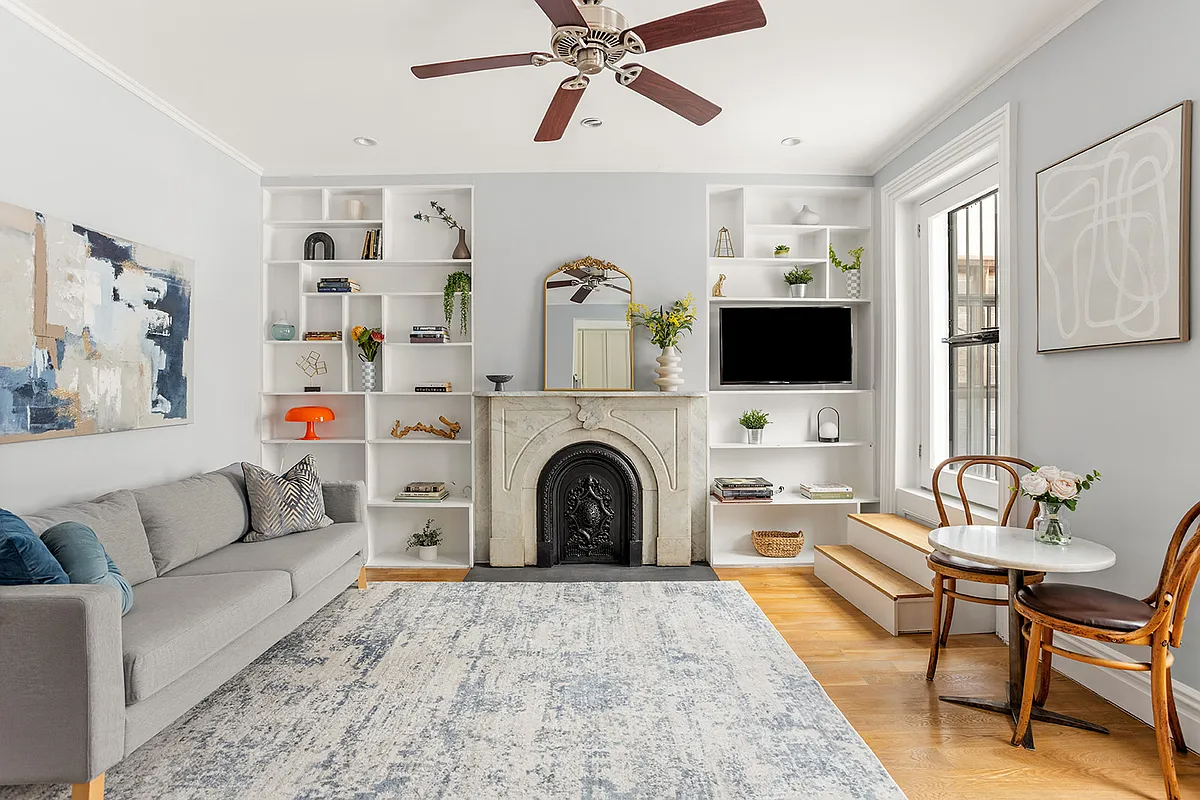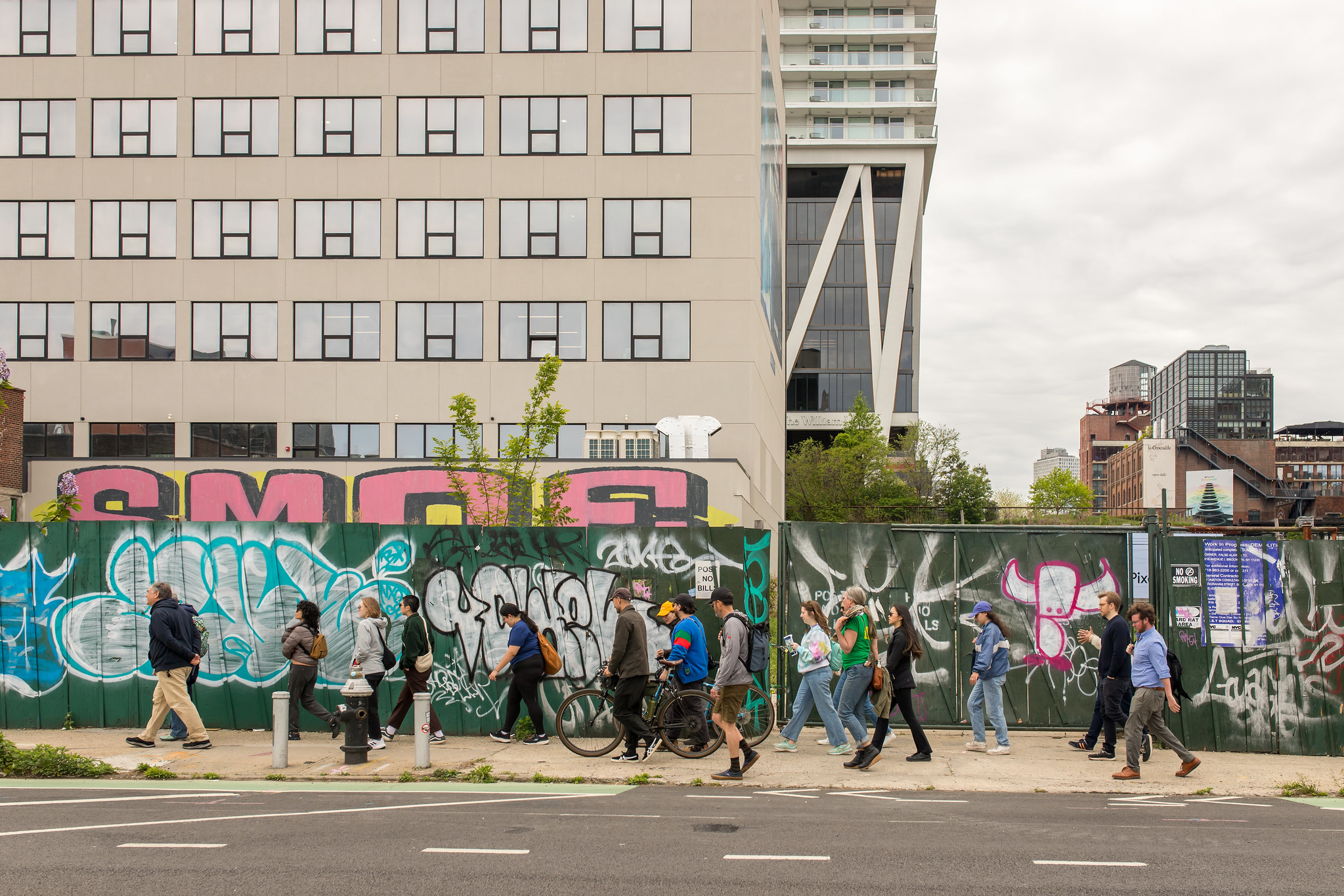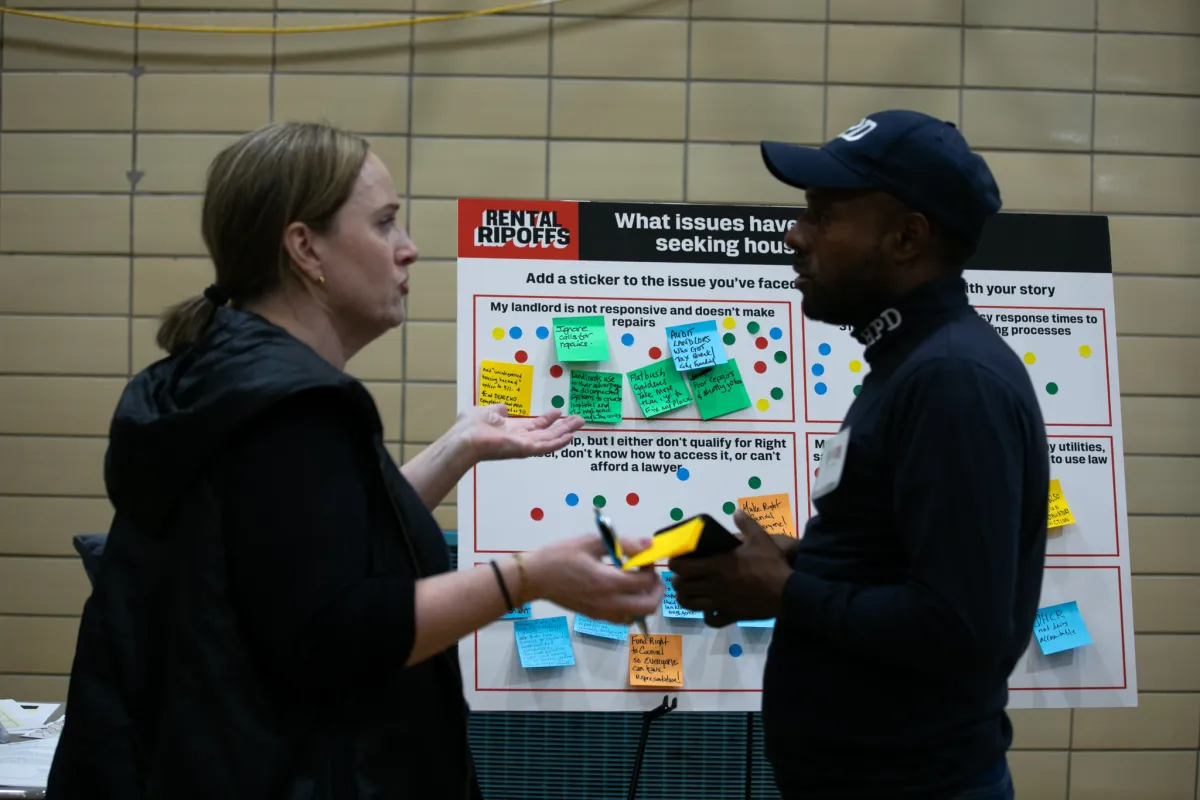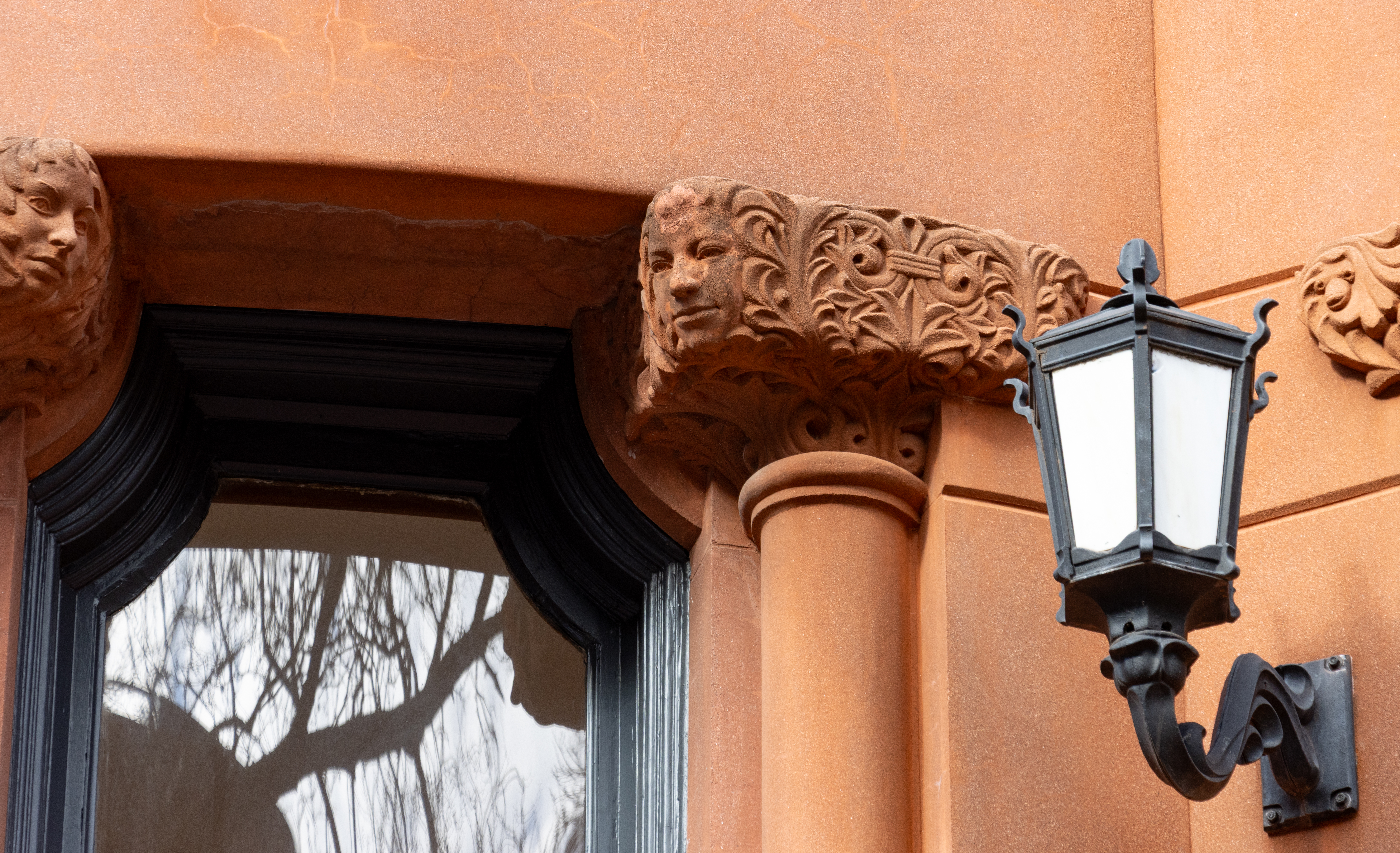Open House Picks
Boerum Hill 243 Dean Street Cobble Heights Realty Sunday 1-4 $2,595,000 GMAP P*Shark Stuyvesant Heights 404 Stuyvesant Avenue Halstead Sat 12-2, Sun 12-2 $1,475,000 GMAP P*Shark Victorian Flatbush 2119 Albemarle Terrace Brown Harris Stevens Sunday 2-4:30 $1,250,000 GMAP P*Shark Bedford Stuyvesant 73 Lexington Avenue Agent Mike Sunday 10-1 $919,000 GMAP P*Shark

 Boerum Hill
Boerum Hill
243 Dean Street
Cobble Heights Realty
Sunday 1-4
$2,595,000
GMAP P*Shark
 Stuyvesant Heights
Stuyvesant Heights
404 Stuyvesant Avenue
Halstead
Sat 12-2, Sun 12-2
$1,475,000
GMAP P*Shark
 Victorian Flatbush
Victorian Flatbush
2119 Albemarle Terrace
Brown Harris Stevens
Sunday 2-4:30
$1,250,000
GMAP P*Shark
 Bedford Stuyvesant
Bedford Stuyvesant
73 Lexington Avenue
Agent Mike
Sunday 10-1
$919,000
GMAP P*Shark





yes, 12:08….great idea…buy later!!!
why not wait till you’re 65 to buy when you want to retire??!!!
people need about 30 years to pay off their mortgage. most of us would like to buy something and pay it off while we are still in our most productive earning years which peaks at around 40 or so.
if you haven’t gotten into the real estate game, by that point in time and you don’t make a ton, you are going to be screwed, because time is NOT on your side.
30 years puts you at paying the place off at 70, max.
most people would like more stability as they age.
not less.
12:01 – Actually they just released a report last week. Supply is still at historic lows in NYC. No noticeable increase in supply has taken place.
You are incredibly misinformed.
to 11:23: if your million dollar apt drops 10%, you’ve lost 100,000. That’s the benefit of “it’s yours” in a down market. Owning only makes sense if you think the price is going up. Otherwise, rent and buy later. Your income goes up, prices go down, and you are better off all around.
11:47….your numbers are all bogus.
you just think people are dumb enough not to check your work.
doh.
buying is always better than renting.
unless you like throwing money down a toilet.
If you rent, you take the risk that rents go up. They will: heat, taxes, repairs go up. And the city gets more popular. But they can’t go up faster than incomes for long, or there won’t be anyone to rent.
If you buy, you take the same risk of higher heat, taxes and repairs. You also take the risk that housing prices will go up faster or slower than rents.
If prices go up faster than rents, owners win. Vice versa, renters win. In the long run, though it is hard to see how one can beat the other for long.
It is hard to build brownstones (although not that hard to build comparable apartments in brownstone neighborhoods), but it isn’t that hard to convert rentals to ownership or vice versa. So if the market gets out of whack, in NYC as everywhere else, sooner or later the developers will figure out how to increase supply and bring prices down again.
Fourth Avenue, Flatbush Avenue, conversions downtown, DUMBO, the former Witness buildings, and, of course, the gradual conversion of rent stabilized apartments to coops/condos — supply is increasing rather rapidly. Owners have had a good run, but it’s not likely to continue forever.
Dean St is $2.6m. If you can get a bank to give you a $2m mortgage at 7%, this costs $140k / year in interest. Plus taxes, repairs, heat, etc, which will be at least 25k. You can offset this with rent for two floors — say 4500/mo or 55k/yr. And the government will subsidize the first $1m of your mortgage — if you are in the 40% bracket, that’s worth 28k. So you are paying, after taxes, roughly $82k/year — $6800k/month — to live in half the house, while your tenants pay $4500k/mo.
But that isn’t quite right. You also have 600k that could be earning you something elsewhere. If you could make 8% — less than long term stock market returns — that’s another 48k/yr = 4k/mo. (You also have a certain amount of unpaid labor as a landlord, but I’m going to ignore that.)
So, for this to make sense, you need to be willing to spend an extra $6300/month for the privilege of being a landlord, or you need to believe that Dean St will increase in value by more than that.
So maybe you think that it will go up more than that — it’s not a very high percentage of $2.6m, after all. But do remember that for the price of the house to go up faster than rents, a buyer has to be willing to pay an even bigger premium to own. Already, the homeowner is paying $10,800 to live in an apartment renting for $4500. How much bigger will the gap get before prospective owners decide that maybe there aren’t going to be more increases?
Note that if Dean St drops in value by 10% in the next year, that means the owner living in a duplex would be paying $6800 cash, $4000 in lost investment income (opportunity cost) and $21,000 in lost equity per month, for a grand total of $31,800 per month.
If you plan to live in the whole house, the numbers look a little better (since you aren’t paying for the privilege of having tenants). But the basic picture is the same: you’d be much better off renting a full house in Brooklyn Heights for $12k/month and investing your downpayment somewhere safe. $600k at 8%, after all, will cover 4k of that rent, so you’d be saving about 24k / month — enough for a really nice vacation house, or for an investment banker spouse to stop working.
9:48 here – I’m really thinking of apartments, not houses, so I’m still factoring in the mortgage deduction which is for mortgages under 1mil. If the property goes down, yes, equity will be lost, but if you are buying a place to stay for a long time, then isn’t it a wash and/or a better investment to buy since eventually prices do go back up (certainly they did in NYC after the last slump…)? And isn’t there a risk in continuing to rent for many more years, waiting for the market to go down enough that you can afford to buy? At least then, you lock in your mortgage, whereas if you rent, your rent is going up. It seems that fewer people “rent” brownstones – and they are so much more expensive, perhaps they really are a tulip craze. (Then again, as long as they are as scarce as they are -no one can really build a new turn-of-the-century brownstone – will they really crash? Isn’t that the difference between the rest of the country, where there is so much sprawl and newer construction, versus prime brownstone brooklyn?)
As for 10:44’s question, I can tell you that in prime Park Slope, rents for a nice 3BR (“true” 3 bedrooms, not a closet)/2BA apts can easily be $3500-$4000 (esp if there is outdoor space, W/D in apt, storage, details, good school, etc.) and those apts are also the ones selling in the million dollar range. So I think, if the monthly maintenance costs are not too high, buying such an apartment is in fact not so different in terms of expense than renting – and it’s yours.
to 9:48: If prices go up, then you will build equity. If they go down, you will lose equity. If you put 20% down, and prices drop 10%, then you’ve lost half your equity.
If you put your 20% into a bank account, you’d make 5% for sure.
If you pay more to own than to rent (after-tax, and remembering that the mortgage deduction caps out at $1m, and that real estate losses are not deductible for anyone who can afford a brownstone today), that extra charge is the price you pay for (1) the right to renovate, (2) the privilege of paying for your own maintenance/repairs and managing your property, tenants, etc, (3) taking the risk that your highly leveraged investment in NY real estate will either go up or down — and due to the leverage will do so quite dramatically.
Usually, investors want to be paid for taking on risk — they don’t usually pay for doing that.
So it seems unlikely that the gap between rental and purchase markets will remain long term.
In which “prime” neighborhood are 3BR apts selling for $1m and renting for $4000?